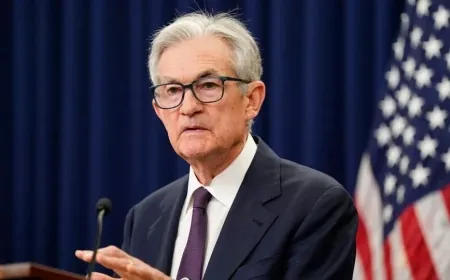Walmart Could Lose Billions as Trump’s Tariffs Raise Import Costs
Walmart is staring down a major profit hit from new tariffs under Trump’s trade crackdown. Prices may rise, stock is already falling, and experts warn it’s just the beginning.

Walmart could soon take a major financial hit due to rising tariffs imposed by former President Donald Trump, raising alarm among investors, retail analysts, and economists alike. The retail giant, known for its low prices and massive global supply chain, may be one of the biggest companies affected if trade tensions continue to escalate.
Retail analyst Greg Melich from Evercore ISI estimates that Walmart’s earnings per share could drop by at least 2% under the new tariff policies. But that drop could grow significantly if the tariffs are expanded further or kept in place long term. The estimate assumes there are no countermeasures like tax relief or regulatory changes to help soften the blow.
Walmart reportedly imports about $105 billion in goods each year, much of it from countries like China and Vietnam. Under the current policy, a 10% base tariff went into effect on April 5. Another round of higher tariffs will kick in on April 9, targeting around 60 countries considered top trade offenders by the Trump administration. In some cases, total tariffs on Chinese imports could rise to 54% when including previous duties and reciprocal taxes. Vietnam faces up to 46% in tariffs.
These added costs will likely be passed on to consumers, meaning price hikes on everyday items could become more common. That’s a big problem for Walmart, which has built its reputation on low prices. Earlier this year, the company had already warned about weakening consumer confidence across all income levels and regions, as people started to feel the pinch of rising prices. Even before these new tariffs, shoppers were spending more cautiously.
While some retailers, including grocery chains, raised prices on products like avocados due to earlier trade tensions, Walmart chose not to. Analysts say that widened the price gap between Walmart and some of its competitors, which may have helped customers in the short term but put pressure on Walmart’s profit margins.
Since the tariff news broke, Walmart’s stock has fallen 8%, and its price-to-earnings ratio has slipped from 36 to 31, signaling investor concerns about the company’s future profitability.
Retail isn’t the only sector keeping a close eye on trade policy. Levi Strauss & Co. (Levi’s), which also relies heavily on international sourcing, said it is working through different scenarios and strategies to deal with what it called an “unprecedented” and fast-changing global situation.
The ripple effects of these tariffs could go beyond retailers. A growing number of economists now believe the U.S. could be heading toward a recession. Peter Berezin, a strategist at BCA Research, said there’s a 75% chance of a recession within the next three months. He believes the economic damage caused by the trade war and reductions in corporate investment may be worse than expected.
If consumer spending continues to slow and companies are forced to raise prices, it could lead to a broader economic downturn—one that might hit lower-income families and price-sensitive shoppers the hardest.
For Walmart, the coming months could be critical. How the company navigates rising import costs, shifts in consumer behavior, and ongoing trade uncertainty will not only impact its bottom line but also offer a glimpse into how other major U.S. retailers might fare in a changing global economy.
Also Read: Amazon Surpasses Walmart in Revenue After Nearly a Decade































































